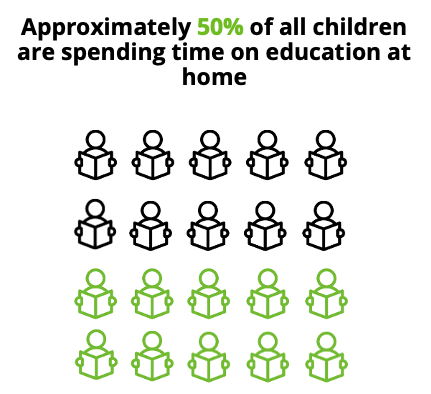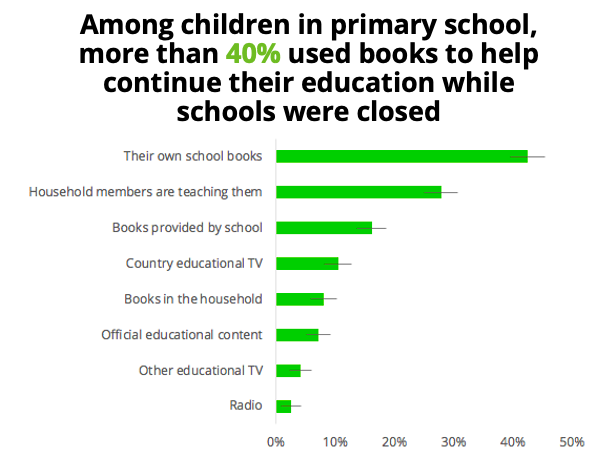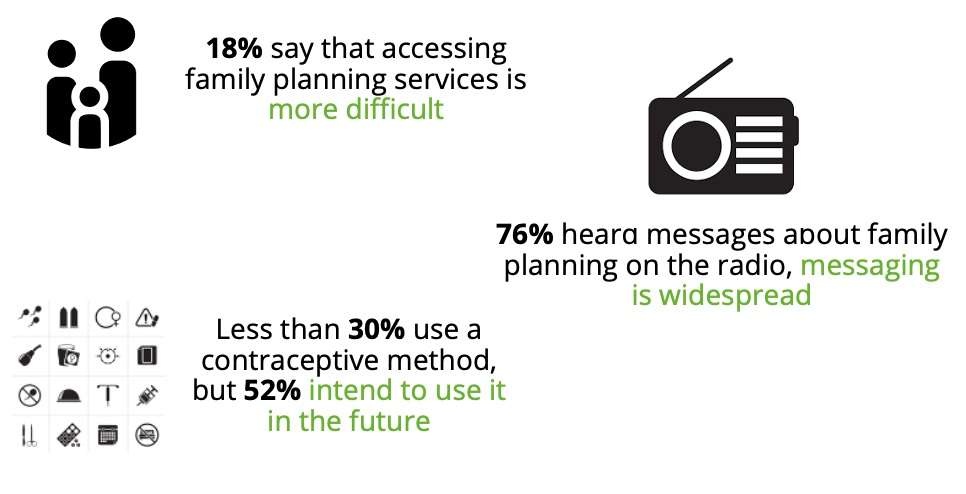Prioritizing Evidence-Based Responses in Burkina Faso to Mitigate the Economic Effects of COVID-19: Lessons from RECOVR
By Luciana Debenedetti, Shahana Hirji, Marius Ogoukonle Chabi, and Tessa Swigart
In Burkina Faso, the COVID-19 pandemic has exacerbated an already deteriorating security situation in the country. In a country of some 20 million people, more than 921,000 people have been uprooted from their homes, and almost three million people are in need of humanitarian assistance. Understanding the immediate effects of the crisis on people’s lives is critical for policymakers to plan for economic assistance and recovery.
IPA has developed the RECOVR survey to better understand such realities and to enable data-driven policy responses. We worked with our key partners in the Ministries of Employment, the International Labor Organization (ILO), and the French Development Agency (AFD) to ensure that the survey can provide useful information for policymakers on work and income. We also included a module to gauge the pandemic’s impact on family planning, developed in collaboration with Development Media International (DMI). In this blog post, we report key findings and policy takeaways from the Burkina Faso survey.1
A majority of respondents say they have been engaging in other preventive behaviors, and do not feel at risk of contracting COVID-19.
39 percent of respondents feel at risk of contracting COVID-19, and most of those who don’t feel safe because they say they’re following preventative measures. 65 percent report washing their hands more often, though following preventive behaviors may be difficult for those in Burkina Faso who have been affected by escalating violence in the country, as an estimated 350,000 people are now homeless or lack adequate shelter.
Some respondents have had to delay or skip routine health appointments.
8 percent of respondents said they had to delay or skip a routine health appointment, citing long wait times or understaffed clinics. Furthermore, the ongoing humanitarian crisis has severely compromised the country’s health infrastructure, where almost three hundred health facilities have been closed throughout the country in areas affected by the violence or are operating at minimum capacity.
With a majority of respondents out of work, the government is working to provide relief.
40 percent of respondents reported working in the last week compared to 60 percent in February. Of those still working, 61 percent report earning less, and 57 percent are working fewer hours. In response to these income challenges, the government is providing utilities support including subsidies and removal of penalties for water and electricity bills, reduction of costs of solar panel kits for poor households, and subsidies on water and electricity costs for market vendors. They are also providing in-kind transfers to market vendors and cash transfers to informal sector workers (fruits and vegetable sellers).
Many respondents are experiencing food insecurity.
While fewer Burkinabe are experiencing food insecurity compared to what we’ve seen in other RECOVR survey results, we still find stark impacts: 30 percent of respondents report depleting their savings to pay for food, 48 percent report that they bought less due to drops in income, and 25 percent lowered portions of meals eaten. This situation is likely to worsen with the seasonal peaks of malnutrition and malaria.
Schools remain closed, and the future is uncertain for many children.
With schools still closed, only about half of students were continuing to learn at home after several months of distance learning. As the RECOVR survey has found in other countries, books, and instruction from adults in the household are the most common source of education.

More than 80 percent of respondents reported that their students would definitely or most likely return to schools once they reopen, with the rest responding that they were “not likely to return” (less than 10 percent) or that they would “definitely not return” (about 10 percent). These results suggest that the shutdown may have long-term consequences for these children, similar to what was observed in the aftermath of the Ebola pandemic in West Africa, where about 25 percent of children in Liberia and 13 percent in Sierra Leone left school permanently. Recent attacks have further led to children being forced out of school with 2,512 schools to date closing as a result of insecurity, affecting 350,000 children across the country.

Access to family planning resources is more difficult for some respondents in Burkina Faso.
IPA has worked with Development Media International (DMI) to evaluate a family planning radio campaign on eight radio stations across the country. With the Ministry of Health, DMI is currently piloting a mass media information campaign (with 39 existing radio partners in 10 languages) to promote essential health messages about COVID-19.
Through the RECOVR survey, we found that about a quarter of reproductive-aged female respondents reported that they were having more difficulty accessing family planning services since the pandemic began. While less than 30 percent of women were currently using a contraceptive method, over 50 percent voiced an intent to do so in the future. About three quarters (76 percent) of all respondents reported that they had heard radio messages about it, suggesting that this form of messaging is effective.

Mireille Belem and Tessa Swigart from DMI discussed these results during the webinar, mentioning how the economic impacts of the pandemic are understandably shifting priorities away from family planning and towards day-to-day needs. This shift in prioritization highlights the importance of continuing messaging on family planning, stocking up on contraception, and highlighting long-acting methods. As the government of Burkina Faso has recently rolled out free contraception, DMI will also start highlighting how people can access these free services.
Policy Takeaways
In the coming weeks, we will discuss these findings and their policy implications with our partners and jointly determine which questions to include in the second round of the survey to inform decision-making. Priority policy questions include:
- How can concurrent concerns around COVID-19 mitigation and continued needs around family planning be balanced effectively?
A majority of respondents in the survey indicated hearing messages around family planning on the radio, confirming that this medium is an effective way to disseminate public health messaging. Additional communications efforts, such as text message reminders, may complement existing awareness and distribution efforts.
- How can we ensure that children who are out of school are learning?
To help children who are out of school due to both the pandemic and ongoing violence in the country, Burkina Faso’s Ministry of Education has begun broadcasting radio and TV lessons. Research suggests that best practices include prompting interaction with the material (rather than stopping at listening only), and these lessons could also be paired with text messages to parents to encourage them to engage with the material. Direct interventions with parents via SMS or other channels have been shown to increase and sustain parental involvement at home and at school, resulting in learning gains. Since the survey results demonstrate that most parents and learners are using books, low-technology interventions such as SMS text messages and direct phone calls could also be considered to increase parental engagement and improve learning outcomes.
- How can the government continue to support those who have lost their jobs or are working for fewer wages?
Cash transfers have emerged around the world as an important income stabilization measure—with 139 countries implementing cash transfer programs (as of July 2020). We highlighted various ongoing efforts in Togo and other countries in Africa in a recent webinar. Burkina Faso can build on its existing in-kind and cash transfer programs, and as pictures continue to emerge about specific sectors or groups (such as informal workers) the government can further target such assistance. Support for businesses and SMEs through other fiscal relief measures—with an emphasis on retaining employment to the extent possible—will also be key.
1. The survey was conducted from June 1 to 15 using random digit dialing of a nationally-representative sample of mobile phone numbers and reached 1,329 respondents.
Luciana Debenedetti is a Temporary Senior Policy & Communications Associate for IPA.
Shahana Hirji is IPA's Policy Manager.
Marius Ogoukonle Chabi is the Country Director for IPA Francophone West Africa.
Tessa Swigart is a Research Manager for Development Media International (DMI).












